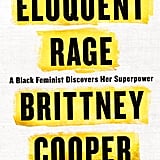

“For it is not the anger of Black women,” Lorde tells us, “which is dripping down over this globe like a diseased liquid. The truth is that Black women’s anger is not the problem.

There is something clarifying about Black women’s rage, something essential about the way it rolls down to the core truth.

This is what the Black Lives Matter movement has reminded us. But the collective, orchestrated fury of Black women can move the whole world. Individualized acts of eloquent rage have limited reach.

Rebecca Traister, Good and Mad: The Revolutionary Power of Women’s Anger, Simon and Schuster, 2018 Orchestrated fury It was dangerous and irresponsible and a sign of exactly how desperate, how utterly, profoundly furious they were, and how out of fucks they were about letting the world know. Some women in the media compiled a shared document, anonymously detailing their encounters with “shitty men” in their industry-men they named. Then there were others who simply took the things that had always been private, quiet-the whispers, nudges, and meaningful stares that had served as warnings-and made them public and loud, with no mediation they wrote their stories on social media, in tweets and Facebook posts that could be sent around the world in seconds. Some spoke to reporters, providing corroborating evidence, contemporaneous witnesses, photographs, and diaries for documentation they showed their nondisclosure agreements and settled lawsuit filings they produced the friends and husbands they told at the time, though many, many of them had told no one. Some women lodged complaints, years later, with HR departments. … Some of those who spoke did so to friends or family members or to other colleagues, many for the first time. But in the four months that followed the reporting on one movie mogul’s sexual predation, a Harvey-sized hole was blown in the American news cycle, and there was suddenly space and air for women to talk-to yell and scream and rage. No one really cared, and certainly no one was going to do anything about it. Something bad happened to you, you shoved it down, you maybe told someone but probably didn’t get much satisfaction-emotional or practical-from the confession. For decades, for centuries, it had been closed. From different perspectives, they each examine the way women’s anger is deflected in patriarchal society and its potential for political impact-past, present, and future. Recent books by Rebecca Traister, Soraya Chemaly, and Brittney Cooper address the particularly superpowerful way women are feeling these days.


 0 kommentar(er)
0 kommentar(er)
